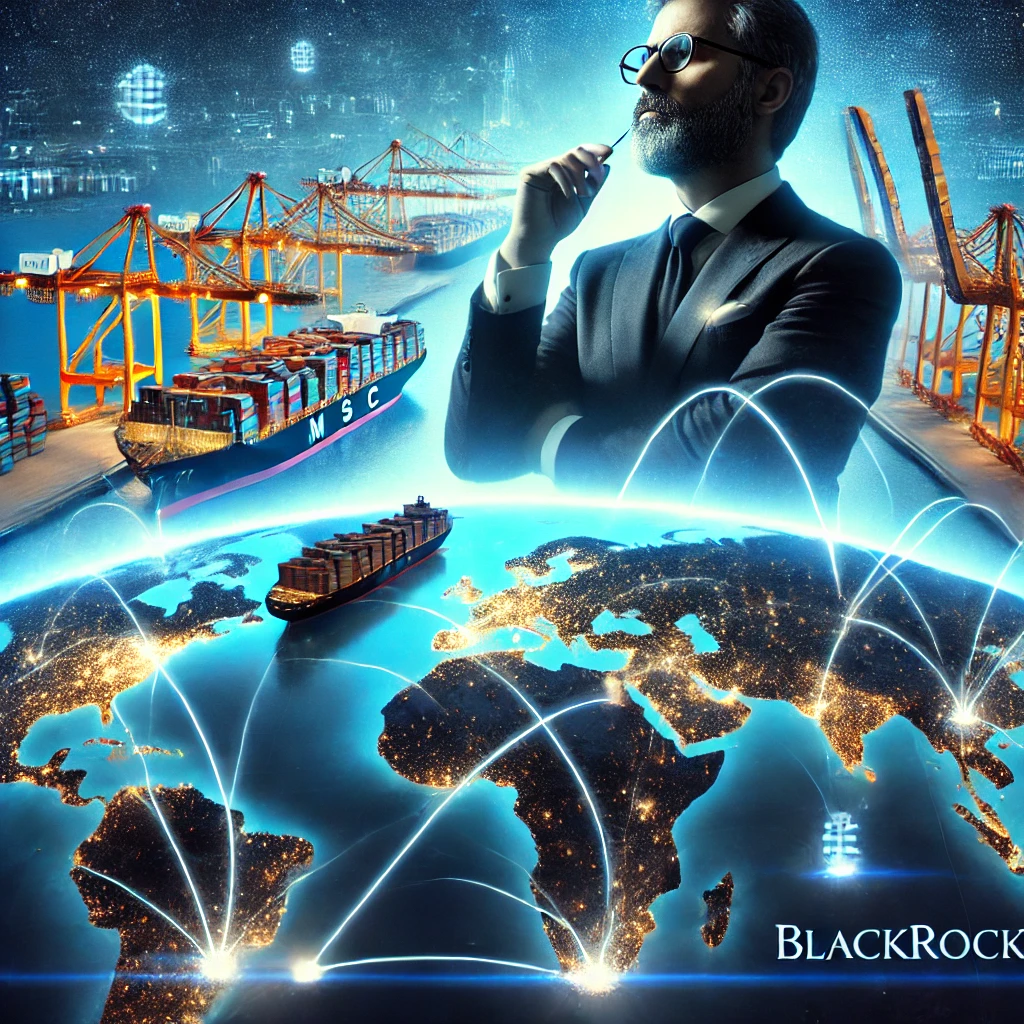Published: March 19, 2025 ✍️ By: Global World Citizen News Team 🌍 Source: GlobalWorldCitizen.com
 As Trump Eyes Panama, Meet the Swiss Billionaire Quietly Building the World’s Largest Port Empire
As Trump Eyes Panama, Meet the Swiss Billionaire Quietly Building the World’s Largest Port Empire
By GlobalWorldCitizen.com | Global Infrastructure & Geopolitics
As President Donald Trump sharpens his focus on strategic trade routes and calls for greater U.S. influence over the Panama Canal, another power player has already made his move—quietly, decisively, and globally.
Gianluigi Aponte, the reclusive Swiss-Italian billionaire and founder of Mediterranean Shipping Company (MSC), has, alongside global investment titan BlackRock, executed one of the largest port acquisitions in modern history: the $23 billion purchase of 43 global ports from Hong Kong magnate Li Ka-Shing’s CK Hutchison Holdings.
While Trump hailed the purchase of two Panama Canal ports during a March address to Congress as an “American victory,” the reality is far more layered. The deal was not led by the U.S. government, but by a powerful alliance between BlackRock’s Global Infrastructure Partners (GIP) and MSC’s port subsidiary, Terminal Investment Limited (TIL). Once approved by regulators, the deal will make MSC the largest port operator on Earth, with over 100 terminals across 54 countries, including three in Panama and eight in the U.S.
 The Rise of MSC: From Modest Roots to Maritime Domination
The Rise of MSC: From Modest Roots to Maritime Domination
Founded in 1970 with a single ship and a $200,000 loan, MSC has become the world’s largest container shipping line, eclipsing Danish rival Maersk in 2022. Co-founded by Gianluigi and his wife Rafaela Aponte, the family-run giant now sits at the center of global logistics, controlling the flow of goods across oceans and continents.
The Apontes are among the world’s wealthiest people, with an estimated $75 billion combined fortune, making Rafaela Aponte-Diamant the richest self-made woman globally.
In just the last two years, MSC has invested over $40 billion across ships, ports, logistics, rail, and even healthcare. The company has ordered or acquired more than 370 ships worth $31 billion, while also buying stakes in freight forwarding, rail, tugboat, airline, and trucking companies.
 Strategic Ports, Powerful Partners
Strategic Ports, Powerful Partners
This latest global port deal further solidifies MSC’s grip on critical maritime infrastructure. Through its partnership with BlackRock—led by CEO Larry Fink and newly acquired GIP (run by billionaire Adebayo “Bayo” Ogunlesi)—MSC expands its reach in geopolitically sensitive regions.
The deal is more than commercial: it’s strategic. Ports in Panama, Africa, Europe, and Asia are essential to global trade security and naval mobility. As Trump signals concern over foreign influence in Panama, MSC and BlackRock are quietly building a new global logistics empire, extending far beyond the control of any single government.
And it doesn’t stop there. MSC has recently:
- Acquired Bolloré Africa Logistics for $5.9 billion, becoming the largest logistics player on the continent.
- Purchased a stake in Italo, Italy’s high-speed rail network, marking its expansion into sustainable passenger transport.
- Partnered with South African billionaire Johann Rupert to buy Mediclinic, a $4.6 billion private hospital chain.
From container ships to rail and healthcare, Aponte’s vision is total transport integration, linking sea, land, and even health infrastructure under one global roof.
 Global Influence and Local Implications
Global Influence and Local Implications
Trump’s rhetoric around “American ownership” of Panama ports masks the deeper truth: geopolitical influence in the 21st century is wielded by private capital as much as by national governments.
With backing from BlackRock and partnerships with global sovereign funds, MSC’s infrastructure reach outpaces most nations. While regulatory scrutiny in Europe and Panama could delay some aspects of the deal, MSC is likely to retain majority control of strategic port assets.
Critics argue that such dominance could lead to monopolistic control over global trade routes. But others see MSC’s growth as a stabilizing force, especially in the face of rising protectionism and supply chain fragmentation.
 Risks Ahead: Trade Wars, Tariffs & Global Slowdowns
Risks Ahead: Trade Wars, Tariffs & Global Slowdowns
Still, the road ahead isn’t smooth. Freight prices have fallen from their pandemic highs, and Trump’s proposed tariffs could dampen U.S.-China trade, a key driver of container shipping. MSC, which relies on U.S. trade lanes for 25–30% of global container volume, could face pressure.
Yet with deep cash reserves, a diversified portfolio, and over 100 ports worldwide, MSC is far better positioned than most competitors to weather turbulence. Its exit from the Maersk alliance and independent strategy reflects its confidence—and capacity—for global leadership.
 Final Thought: The Future of Global Logistics Is Private
Final Thought: The Future of Global Logistics Is Private
While politicians debate over canals and tariffs, Gianluigi Aponte and his global partners are building the real infrastructure of tomorrow—quietly, swiftly, and globally.
This isn’t just a shipping story.
It’s a story of who will own and operate the veins of global trade, and in this new world order, sovereigns aren’t the only ones writing the rules.

